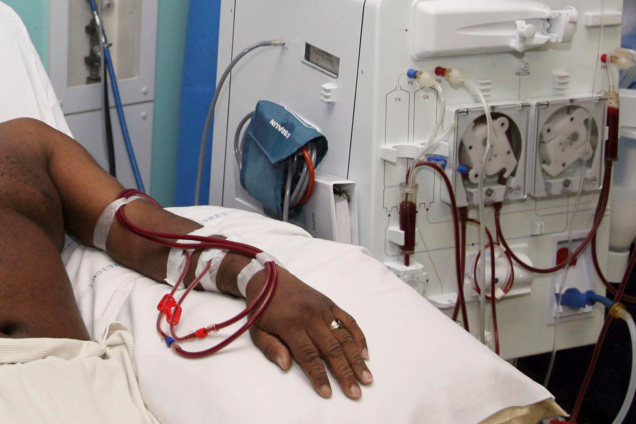
Director of Corporate Affairs at the National Health Insurance Agency (NHIA), Oswald Mensah, says while the NHIA has received numerous requests to add several diseases to their benefits package, resources available to the Agency will not be enough to cover the expenses.
This follows renewed calls for the addition of renal healthcare, particularly kidney dialysis treatment to the NHIS.
Last week, the Korle Bu Teaching Hospital prematurely announced a 100% fee hike at their dialysis centre citing the removal of tax and import duty exemptions on medical consumables.
According to management, should the centre continue to charge the old fees, it would have to shut down in a matter of days.
But renal patients say the centre has been shut to out-patients since May of this year – admitting only emergency cases – forcing them to seek more expensive dialysis care at private hospitals.
Speaking on JoyFM, Oswald Mensah said for dialysis care to be added to the NHIS, a lot of actuarial studies would have to be carried out to see if the scheme will continue to be viable after.
“As you know with the NHIS benefits package, well over 95% disease conditions that are presented in hospitals are covered under the scheme. And we run an exclusions list unfortunately of which dialysis for chronic disease or kidney failure is on the list.
“But as in every case condition, we have so many people knocking on the door of NHIA to include almost everything onto the package and what is most important is always to measure the requests and demands of the scheme with the available resources that can enable this to happen.
“As we’re hearing, the dialysis treatment is quite expensive. If NHIA has to consider that, a lot of actuarial study would have to be carried out to see whether the scheme will be sustainable if we take it on board. But that being said if the patients present with acute renal failure for instance, the scheme covers that and pays for that.
“It’s only those who are on chronic diseases, kidney failures, those are the ones that are excluded for now and I’m sure conversations will be going on to see what can be done going forward,” he said.







